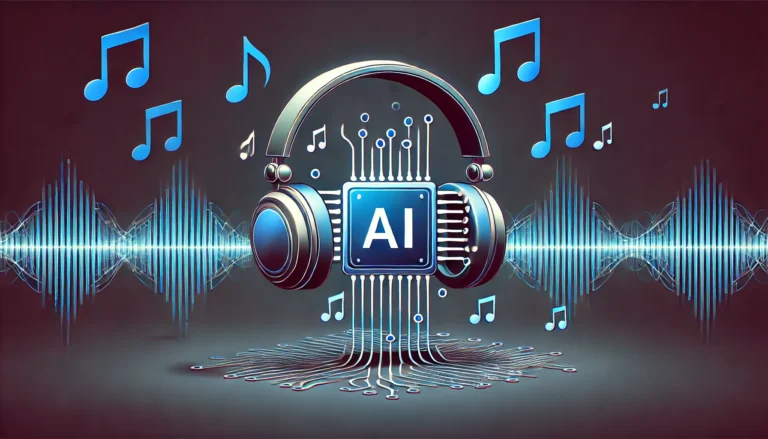In a world where technology constantly reimagines the boundaries of creativity, AI music generator are emerging as powerful tools that blur the line between human artistry and machine intelligence. These innovative platforms use artificial intelligence to compose original music, offering endless possibilities for musicians, content creators, filmmakers, and everyday users.
What Is an AI Music Generator?
An AI music generator is a software application powered by machine learning algorithms that can create music tracks with little to no human input. By analyzing vast libraries of existing songs, understanding musical patterns, genres, and emotions, these AI systems learn to compose new melodies, harmonies, rhythms, and even lyrics. Some AI generators are designed to assist human musicians, while others can produce complete tracks on their own.
How Do AI Music Generators Work?
AI music generators typically rely on deep learning and natural language processing (NLP) models. These systems are trained on massive datasets of music, dissecting elements such as tempo, chord progressions, instrumental arrangements, and vocal styles. After processing these patterns, the AI can generate original compositions tailored to a specific mood, genre, or tempo.
Many platforms allow users to input a few preferences—like genre, instruments, mood, or length—and the AI takes care of the rest. Some popular AI music generation tools include AIVA, Amper Music, Soundraw, and Boomy.
Why Are AI Music Generators Gaining Popularity?
The growing interest in AI-generated music is fueled by several key factors:
- Accessibility: AI music tools make it easy for anyone, regardless of musical background, to create professional-sounding tracks.
- Cost-Effective: Instead of hiring a composer or buying expensive music rights, creators can use AI-generated music for personal projects, advertisements, and social media content.
- Speed and Efficiency: AI can compose, arrange, and master a song in minutes—ideal for industries that need quick turnarounds.
- Customization: Users can specify the mood, energy level, and genre, making it possible to tailor music to fit unique brand identities or project themes.
Is AI Music a Threat to Human Musicians?
One of the most debated questions in the creative industry is whether AI will replace human musicians. While AI music generators are incredibly advanced, they still lack the emotional depth, cultural awareness, and storytelling ability that human artists bring to their craft. Instead of seeing AI as a rival, many musicians view it as a collaborative tool—a way to overcome creative blocks, explore new ideas, or enhance their work.
Artists like Taryn Southern and projects like AI-composed symphonies demonstrate how human creators can harness AI as a musical partner, combining human emotion with machine precision.
The Future of AI Music Generators
As technology continues to advance, AI music generators are likely to become even more sophisticated. We can expect systems that better understand context, emotion, and audience preferences—generating tracks that feel indistinguishable from human-made music. AI-generated music could become a staple in advertising, video games, films, and even live performances.
However, with innovation comes new challenges, especially in areas like copyright, ownership, and ethical creativity. As AI music becomes more mainstream, it’s essential to develop clear guidelines for its use, ensuring a fair and respectful relationship between human and machine-made art.
Final Thoughts:
AI music generators aren’t here to replace musicians — they’re here to empower creators, inspire new forms of artistic expression, and expand the possibilities of sound. In the coming years, as these tools evolve, the partnership between humans and AI could redefine the very essence of music itself.
